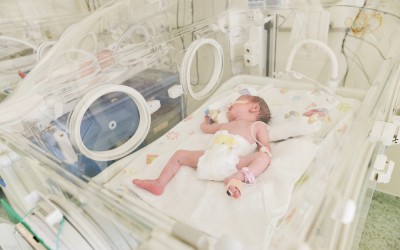
How to Show Up for a Preeclampsia Parent of Loss: A guide for loved ones
Key Points:
- Grief is not linear. Grieving parents and families may need different kinds of support depending on their circumstances at the time. Start by asking them what you can do.
- Ask both parents how they are doing. Listen to what they say (or don’t say).
- Don’t prescribe how you think they should be feeling.
- Think about the words you say. Sometimes, it’s okay to just sit beside them in their grief and not say anything.
- Check in regularly, not just the days or weeks after the loss.
The emotions of infant loss
It’s devastating to recognize that pregnancy does not always end with a healthy mom and baby coming home in the modern age. The fact that women and babies still die during pregnancy and childbirth can be overwhelming. Having a friend or family member who experienced loss during an unexpected, severe case of preeclampsia and/or HELLP syndrome may be the first time that you have personally experienced infant death.
Start with recognizing your own emotional state. You may experience shock, frustration, anger, regret, helplessness, sadness, or even numbness/avoidance. You may feel unclear what to say. You may feel as though you cannot go see the family of loss. Recognize that all of these emotional reactions are quite normal during a pregnancy loss. There is no single "right" way to feel when a senseless tragedy like this occurs.
The best place to start is to check in with yourself emotionally and recognize what you are feeling, so that you can appropriately separate it from the emotions that your loved ones may feel.
What to say (and not say)
It’s hard to know what to say to parents who have experienced a pregnancy or infant loss because of preeclampsia or HELLP syndrome. You may never have gone through something so tragic and painful in your own life, but even if you have, each person’s grief is different. Here are a few recommendations on what to say:
- “I’m so sorry for your loss.” Simple can be best. Acknowledge that their baby existed. Acknowledge that the loss is a devastating one that you mourn beside them.
- “I don’t know what to say – but I’m here for you.” Words are not always required. Recognize that sometimes there are no words, but that your presence is available for whatever they need.
- “I/We love you and your family. Is there anything we can do for you?” A patient who has recently experienced preeclampsia or HELLP syndrome may be physically and emotionally recovering herself in addition to her loss. Ask the family directly what would be helpful, and never assume what they need.
There are also things that NO parent of pregnancy or infant loss wants to hear. This includes hearing about other people’s experiences, suggesting that the pain will disappear, or that their baby is somehow “replaceable.” Please do not say any of the following:
- “You’ll get over it.”
- “At least you are healthy.”
- “You can always have another baby.”
- “I guess this was God’s will.”; “God wanted another angel.” or any other variant of this theme.
- “Someone I knew who had a loss just had another baby…”
Each of these phrases represent ways that people try to "make sense" of the senseless tragedy of an infant death, but they are not helpful. At the end of the day, if you cannot think of what to say, don't say anything. A big hug and your presence may be all that a loved one needs in the moment.
Remember Mom AND Dad
Grief can affect men and women very differently. Remember that although Mom may have carried their baby, Dad is mourning too. Each person's grief is unique and may manifest in different ways. While it may seem obvious to comfort a mom who has had preeclampsia as she physically recovers, don't forget that Dad is also holding together the pieces too.
The Loss of a Whole Lifetime
Parents of loss will tell you that infant loss is not one single moment in time. Each year, the anniversary of their child's death comes around, and with it, a recognition of all the loss potential of their child's life: birthdays, milestones, family moments, holidays, and everyday occurances. A parent of loss knows when their child would have headed off to kindergarten; taken their first visit to a college; enjoyed the celebration of a family holiday. It is a void that can never be filled, but it holds a permanent space in the family where that child would have been and all the things they may have done.
Many parents of loss will reflect that while people often think they need to avoid speaking about their baby, most appreciate it when someone remembers their child and speaks their name. Even if a parent is not speaking about their child in the moment, you can be certain that they think of them frequently, especially during the big and small moments of life. Most parents would say that they appreciate it when you let them know that you miss and think about their child too.
Unique Needs of Preeclampsia/HELLP syndrome patients
Preeclampsia and other hypertensive disorders of pregnancy affect both the mother and the baby’s well-being. Your loved one may be facing medical recovery of her own on top of the emotions of a pregnancy or infant loss. She may have also come very near losing her life as well. It’s important that you ask what you can do to assist in a way that reflects what your loved ones need. Please see our article on how to “show up for a preeclampsia mom" for unique tips on how to be there for her.
For those who have experienced the loss of a baby, what would you have liked your loved ones to know? What would you add to this list? Send us your feedback.
Related Articles

Doulas can help bridge the gap for any mom, but especially those most vulnerable to maternal illness and death.

Stories of our brave women and families who have been affected by preeclampsia and HELLP syndrome. Please note that due to a technical issue, we are currently fixing the images on this page.

What is Preeclampsia? Preeclampsia is a hypertensive disorder that occurs only during pregnancy and the postpartum period and affects both the mother and the unborn baby. Affecting at least...

Birth Trauma Resources Between 25 and 34 percent of women report that their births were traumatic. A traumatic birth experience is defined by circumstances in which the individual patient bel...
1732072344.png)
While the Preeclampsia Foundation has been championing patient advocacy and representation for all families affected by hypertension in pregnancy throughout our 25 year history, we recognized the uniq...

For many members of the preeclampsia, HELLP syndrome, and eclampsia community, the neonatal intensive care unit (NICU) is a life-changing part of their pregnancy and birth experience. Parents from our...

Resultados de varios estudios apoyan la hipótesis de que el estrés causado por un embarazo y parto traumáticos puede en muchas ocasiones anular la habilidad de salir adelante emoc...

As an advocate who served on the planning committee for the Foundation’s Chicago Promise Walk and 5K Run for numerous years and currently serves on the Patient Advisory Council, Jasmine Mago is...

As a preeclampsia survivor in our PF community, you are probably well-aware that you have a higher risk for various forms of heart disease than our “normal” pregnancy peers. As one survivo...

